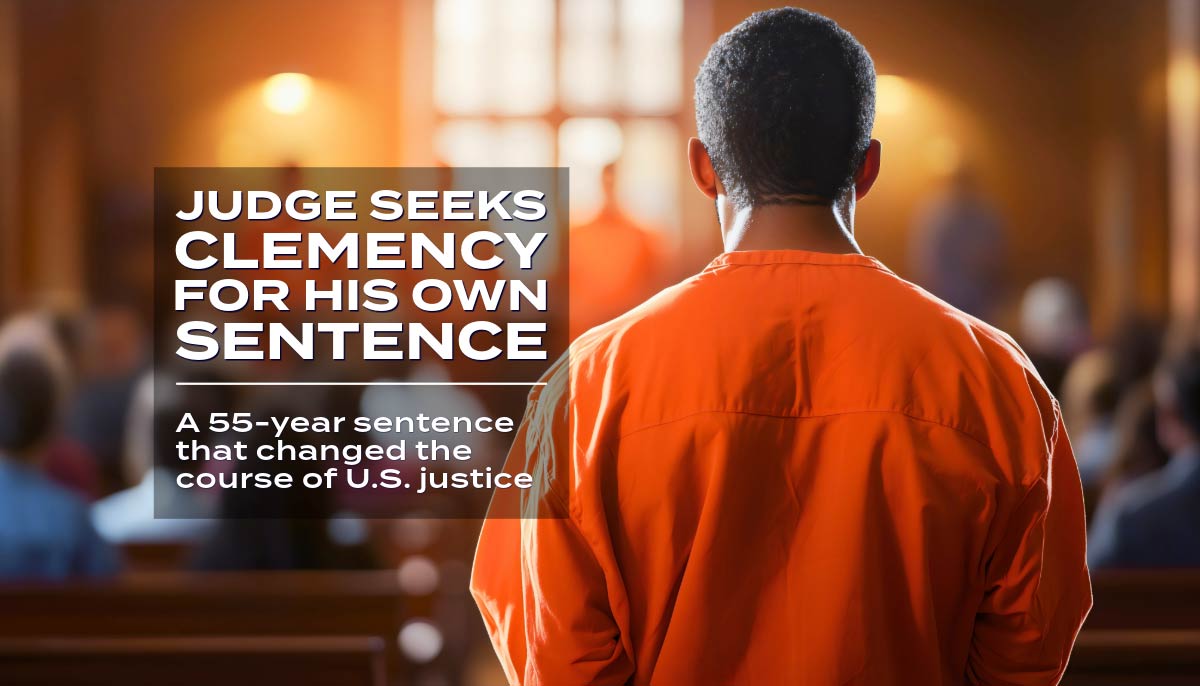
A Rare Plea from the Bench: Judge Seeks Mercy for His Own Sentence
In a powerful twist of judicial reflection, former U.S. District Court Judge Paul Cassell—appointed in 2002 by President George W. Bush—made an extraordinary request. Writing directly to then-President Barack Obama, Cassell asked for clemency on behalf of Weldon Angelos, a man he once sentenced to 55 years in federal prison.
Angelos was convicted on non-violent drug charges, a case that quickly became a symbol of America’s broken sentencing system. The judge, constrained by federal mandatory minimum laws, delivered a punishment he later described as “one of the most troubling” of his entire career.
Mandatory Minimum Sentences: Justice Bound by Law
Weldon Angelos’ case was emblematic of the harsh realities of mandatory minimum sentencing laws. Convicted of selling marijuana while allegedly possessing a firearm—a charge that added significant time under federal law—Angelos received a sentence that would typically be reserved for violent criminals or repeat offenders.
Judge Cassell, known for his conservative judicial record, expressed deep discomfort with the required sentence. In his letter to Obama, he wrote:
I write you as the judge who sentenced Weldon Angelos to a 55-year mandatory minimum prison term for non-violent drug offenses… It appears to me that Mr. Angelos meets all of the criteria for a commuted sentence.
This statement wasn’t just a plea for leniency—it was a public indictment of a rigid system that forced judges to deliver sentences they personally disagreed with.
When Law and Justice Collide: Why Judge Cassell Resigned
Cassell’s frustration with the sentencing laws ran so deep that it contributed to his decision to resign from the federal bench after just five years. In interviews and legal writings, he has repeatedly cited the Angelos case as a turning point—a moment when he realized that justice, in its purest form, could not always be delivered under current federal guidelines.
His departure highlighted a growing concern across the judiciary: judges were losing their discretion. Mandatory minimums were stripping the courts of their ability to weigh each case on its individual merits.
Angelos’ Case: A Catalyst for National Reform
The injustice surrounding Angelos’ sentencing resonated far beyond the courtroom. Advocates for criminal justice reform, celebrities, and even law enforcement officials joined the call for his release. His case became a lightning rod in the national debate over sentencing reform, especially as more Americans began questioning the fairness and effectiveness of locking away non-violent offenders for decades.
This growing movement helped to influence policy shifts and drew the attention of multiple presidential administrations.
Presidential Pardons and a Shift Toward Second Chances
Cassell’s appeal to Obama didn’t go unheard. During his presidency, Obama commuted the sentences of over 1,700 federal prisoners—more than any president in history—many of whom were non-violent drug offenders serving disproportionately long sentences.
This trend continued under President Biden, who has signaled a firm commitment to addressing systemic inequities in sentencing. By commuting sentences and issuing pardons, these leaders acknowledged that punishment must be proportional to the crime, and that redemption should be possible for those who have paid their dues and demonstrated reform.
The Human Cost of Harsh Sentencing Laws
Weldon Angelos spent years in prison before eventually being released. His story is a stark reminder of the devastating personal and societal impact of mandatory minimum laws:
- Families torn apart.
- Taxpayers burdened with the cost of long incarcerations.
- Individuals robbed of the chance to rebuild their lives.
Since his release, Angelos has become a vocal advocate for criminal justice reform, using his platform to prevent others from enduring what he experienced.
A Judge’s Change of Heart: A Symbol of National Awakening
What makes this case so unique—and so powerful—is not just the harsh sentence, but the fact that the judge himself sought to undo it. Judge Cassell’s public reversal gave weight to the argument that these laws often go too far. His candid admission that the system forced his hand lent credibility to reform efforts that might otherwise be dismissed as partisan or emotional.
His voice, once a part of the machinery of mandatory sentencing, has now become one of its most compelling critics.
Toward a More Just Future: Reform Is the Only Path Forward
The Angelos case underscores the urgent need to revisit and revise outdated federal sentencing laws. As public opinion shifts and bipartisan support grows for reform, America stands at a pivotal crossroad.
It is no longer a question of if reform is needed—but how fast and how far we are willing to go to right the wrongs of the past.
Conclusion: Justice That Evolves
Weldon Angelos’ journey from a 55-year sentence to freedom, and Judge Cassell’s evolution from enforcer to advocate, tells a story of justice evolving with conscience. It reminds us that true justice isn’t static—it requires humility, reflection, and the courage to correct course. For more on how societal advantage shapes outcomes in legal and medical systems, see Privilege in Recovery: Impact on Heroin Addiction Outcomes.
As we continue to reimagine a more humane and effective justice system, stories like these serve as both a warning and an inspiration: that even the law must bend when it becomes a barrier to fairness.












